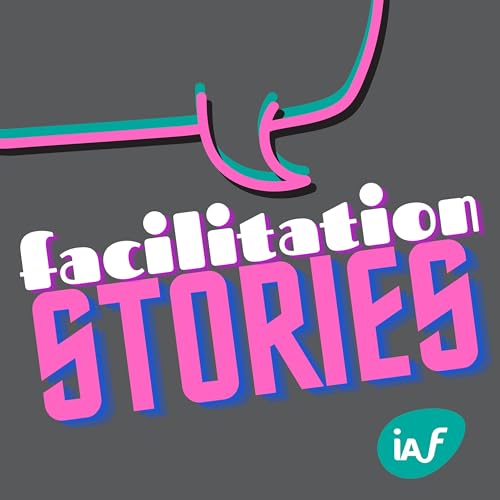In this episode Helene talks to Andrew Spiteri, Regional Director of the IAF Europe and Middle East Region. Andrew tells Helene about himself as a facilitator, the kind of work he does and his background with IAF. He became regional director at the start of the year and shares a bit about the work he has been involved in so far, his roles and responsibilities as director, and what he would like to see in future for the region and beyond. He tells us about the regional conference in Romania in November 2025 and about what he most loves about facilitation. You can contact Andrew at: rep.europe@iaf-world.org And Helene at helene@jewellfacilitation.com To contact the podcast team: podcast@iaf-englandwales.org Transcript H.J Hello and welcome to Facilitation Stories, the community podcasts brought to you by the England and Wales chapter of the International Association of Facilitators, also known as IAF. I'm Helene Jewell, and this episode is one of our quarterly chapter chats, where we talk to people leading other chapters in the IAF global community. We ask them how they see the status of facilitation where they are, and the history priorities, current projects and aspirations for their chapter. My guest today is Andrew Spiteri, IAF endorsed facilitator, consultant and elected Regional Director for the Europe and Middle East, EME region of the IAF for 2025-26. Andrew accompanies diverse groups, associations, entities, NGOs and also faith based organizations, and also often works in international settings, helping groups in collaboratively formulating vision, strategy and action planning activities. Andrew comes from Malta, is a resident in Brussels, and is in Italy for long stretches during the year. Welcome Andrew. A.S Thank you. Thank you. Thank you for having me. H.J Every time I speak to you, you're globe trotting somewhere. A.S That's right. Yeah, that's right. H.J So tell us a little bit about you as a facilitator, and the kind of work that you do? A.S That's, it's always difficult because to start, because it's, it's so fascinating facilitation. And I think I was doing facilitation for many years without actually knowing it was facilitation. So I love to help groups work together, and what I really love is to give space to each and every person, because to manage to help that everyone contributes. Because I really believe everyone, even those who are apparently not well prepared, well suited or appear to be like a lot of the time. But I think everyone has a gift to gift and facing that challenge of helping take away all what, what blocks this, this, this participation, and creating climate where people can collaborate is really something I love, and so that's what I try to do in my facilitation. I work a lot with groups, associations, sometimes even with companies, but I would prefer normally NGOs or even associations, which could be very small or very big, international, with all the challenges of culture differences and cultural differences and even age differences. So, yeah, that's a bit what I'd like to do, and what I do usually. H.J Brilliant. And I think that thing about doing facilitation, before you know, it's called facilitation, is definitely a common theme, certainly, I think, back on all the podcasts we've recorded, and I think that's one thing that comes out in nearly all of them, fascinating. Okay, and so very international. What language do you facilitate in? Mostly, is it English? A.S Yeah, basically it's English. Not only, I know English, Italian, Maltese, evidently. So sometimes I do it in Italian. It depends on the group. I've just come from, Vienna. I had five sessions, very intense, and basically they were all in English. I had simultaneous translation in German. Most Viennese understand very well, and even speak English quite well. So it depends on the context, on the place, on the client, let's say, on how you organize. Yeah. H.J Wow. Sounds like you have a very diverse practice, which must be completely fascinating. A.S I remember once I was, like, two years ago, I was in Poland, and so this organization, sort of, they were, they knew a lot of Italian more than English. So I had two headphones, sort of from one headphone I would speak, a headphone with a microphone, and I would speak in English, sorry, in Italian. And they would they would hear me and translate in Polish. And from the other headphone, I would hear what the other people were saying in Polish translated into Italian. So it was like good, yeah. H.J Wow, that's the ultimate in a simultaneous translation. Blimey. Okay, so I should add multi-talented linguist to your list of skills, by the sounds of things. So I'd like to know a bit more about you know IAF and I know you've been involved for quite a while, so when did you become a member of IAF? A.S So that, yeah, yeah, it will go back to what you were saying before that for many years, or for many ...
Show more
Show less
 Dec 5 202534 mins
Dec 5 202534 mins 28 mins
28 mins 42 mins
42 mins 39 mins
39 mins 44 mins
44 mins Jan 21 202522 mins
Jan 21 202522 mins 36 mins
36 mins 35 mins
35 mins
